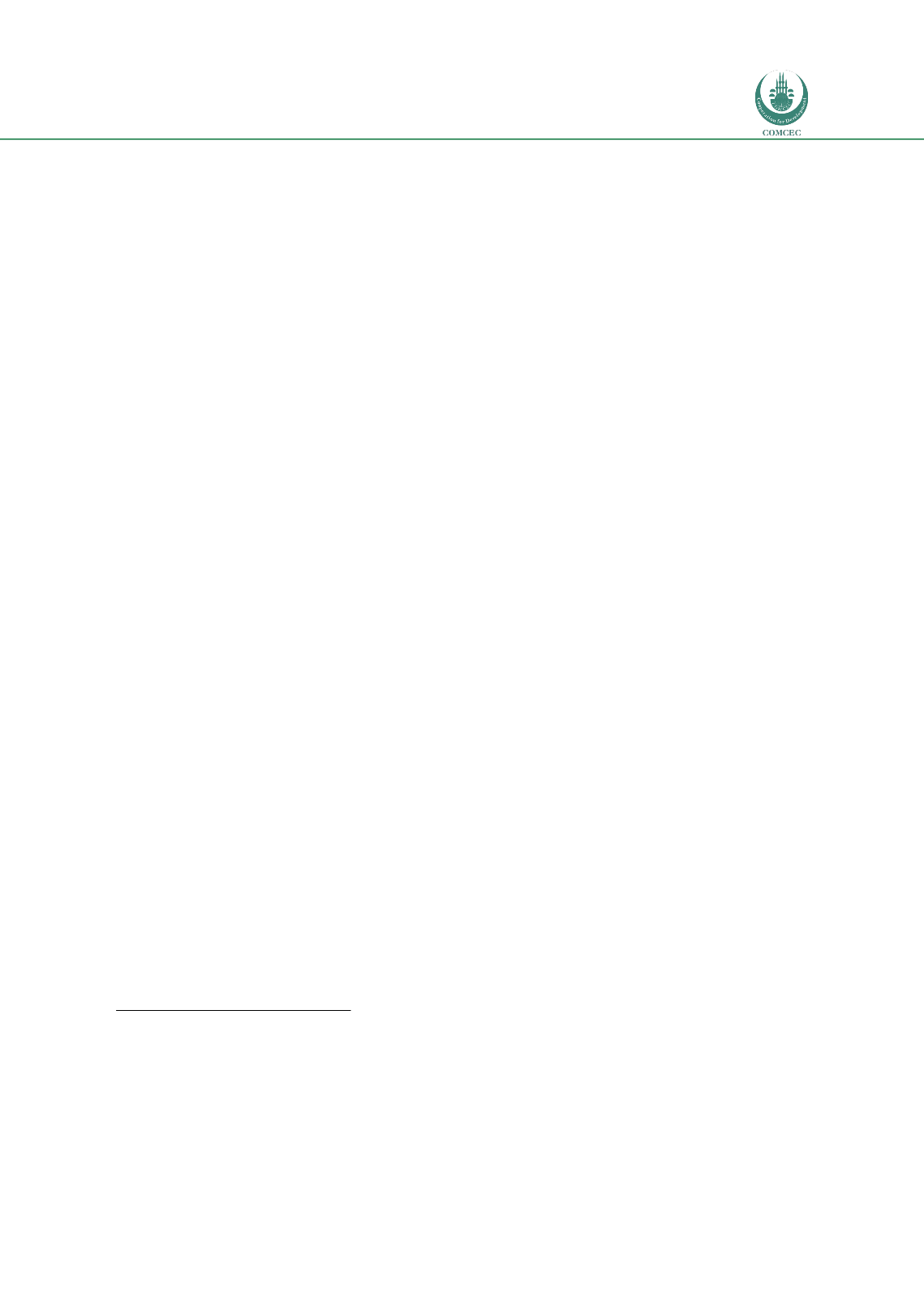

Reducing Postharvest Losses
In the OIC Member Countries
85
ii)
Consumer support – heavily subsidised price of
baladi
bread (accessed using
smart-card system since 2015), and government ownership of 12% of bread
baking capacity
iii)
Public investment in improved grain storage facilities and state trading
iv)
Public support to general services (crop breeding research, phytosanitary control
etc.) (FAO, 2015)
Whilst these government interventions aim to secure national food security, political stability
and act as a vital social safety net for the 25% of Egyptians living below the poverty line
(World Bank, 2011), there are unintended outcomes. These include:
the high subsidised procurement price to encourage wheat production in Egypt
13
also
encourages fraud as cheaper imported wheat is sold on as or blended with
domestically produced wheat (Wally, 2016)
large volumes of flour being resold on the black market (FAO, 2015)
significant extra costs/inefficiencies due to government involvement in cereal
procurement, storage and milling compared to if the process was liberalised
14
increasingly complex tender documents, import requirements and processes
15
poor quality of many of the
shouna
storage open bag-stack arrangements cause
qualitative and quantitative losses due to exposure to weather and pests, plus labour,
bag and handling costs are high due to large number of employees, complex
procurement system and security guarding; failed fumigations are reported (El-
Lakwah, 1995)
Inefficient management of government storage facilities at the ports lead to long
turnaround and loading times, delays in port and increased demurrage costs (FAO,
2015).
13
In 2014, the government spent ~USD$357 on subsidising the price of domestic wheat
14
Some suppliers suggest imported wheat prices are higher for the government than for private companies by roughly USD
6-7/tonne, plus a further USD 0.50-0.75/tonne for government inspections at the port of loading compared to using private
inspection services at a cost of about USD 0.25/tonne. Additionally, the “freedom from ambrosia seeds” rules in force mean
that if a shipment is declared to include ambrosia, additional costs of USD 12-15/tonne are incurred. This risk converts into
higher prices for Egypt’s wheat imports.
15
Including the strict and subject-to-change-without-notice import specifications (e.g. ergot tolerance), and short notice
GASC tenders, e.g. 7 weeks from tender originating to delivery of the wheat – which leads to suppliers incurring additional
costs and some potential supply origins being unable to participate (FAO, 2015).
















